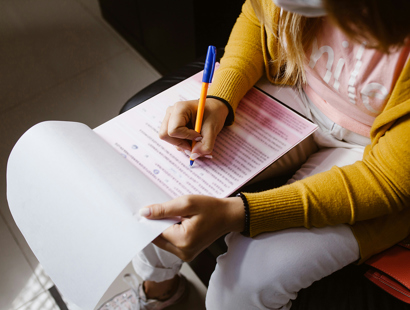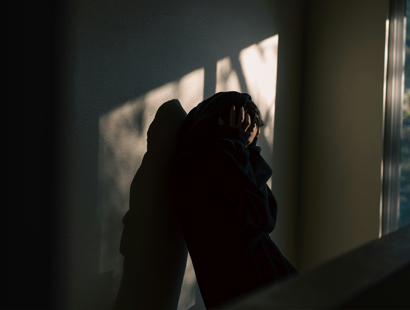Domestic abuse support resources
Find help and support for domestic abuse victims
Guidance and resources
When the devastating impact of domestic abuse is to leave victims feeling vulnerable, isolated and afraid for their own and their children’s safety, it is vitally important that people know where they can find help and support for themselves or their loved ones.
Below we have set out guidance on where to find such support, including through the police, specialist charities and the court system.
What is domestic abuse?
Domestic abuse is any incident or pattern of controlling, coercive or threatening behaviour
Domestic abuse is any incident or pattern of controlling, coercive or threatening behaviour, violence or abuse between people who are, or have been, intimate partners or family members, regardless of gender or sexuality.
Domestic abuse can encompass:
- physical violence
- coercive control (a pattern of intimidation, degradation, isolation and control with the use or threat of physical or sexual violence)
- psychological and/or emotional abuse
- sexual abuse
- financial or economic abuse
- harassment and stalking
- online or digital abuse
- ‘honour’ based abuse
Urgent domestic abuse help
If you are in immediate danger, you should call 999
If you are in immediate danger, you should call 999. If you are unable to talk openly on the telephone, press '55' and the operator will transfer the call to the relevant police force as an emergency. Independent Office for Police Conduct (IOPC) provides guidance on this 'silent solution'.
Visit our dedicated family and children service page
Our expert family solicitors can advise you on all forms of relationship breakdown including pre-nuptial agreements; family-building and arrangements for children; financing your relationship and bringing your relationship to an end in the most constructive and affirmative manner.
Who can I talk to?
If you need to speak to somebody confidentially about your concerns for yourself or for your loved ones, you can call the Freephone 24-hour Domestic Abuse Helpline on 0808 2000 247 or contact the National Domestic Abuse Helpline to arrange a call-back at a safer time.
Other specialist helplines include:
- Men’s Advice Line for male victims and those supporting them—0808 801 0327
- Galop Helpline for members of the LGBTQ+ community—0800 999 5428 or email [email protected]
- Respect Phoneline for those worried about hurting their loved ones—0808 8024040
Where can I go?
If staying with friends or family is not possible, there are other options such as staying at a refuge or seeking council housing.
While it can be extremely difficult to leave an abusive household, your safety and the safety of your children must be paramount. If staying with friends or family is not possible, there are other options such as staying at a refuge or seeking council housing.
Contact the National Domestic Abuse Helpline (operated by Refuge) for guidance about what services are available in your local area and the possibility of staying at a refuge. If a refuge is not immediately available, Refuge’s advisors will be able to refer you to other types of services, talk through alternative housing options, and provide support and information on keeping safe.
You can also contact Shelter on their helpline 0808 800 4444 to discuss making an application for emergency housing in your local area.
What are my legal options?
Many forms of domestic abuse are criminal offences, and if you feel it is safe to do so, you should report the incident(s) to the police.
You may also be able to apply to the family court for an injunction to protect you from domestic abuse. There are two types of injunction: non-molestation orders and occupation orders. You can apply for either or both of these injunctions in the family court.
Non-molestation order
This is a court order which requires the person who is the subject of the order to refrain from using or threatening violence, intimidating, harassing, or pestering you. A breach of a non-molestation order is a criminal offence for which the abuser can be fined or imprisoned.
Occupation order
This is a court order that regulates who can live in the family home. The order can be used to exclude the perpetrator of domestic abuse from the family home or it may prevent him/her coming within a certain areas of the family home.
If you need an injunction urgently, you may seek a temporary emergency injunction without the abuser’s knowledge at the court’s discretion. This is called an application made ‘without notice’.
Please see our article, 'Domestic Abuse and the Family Law Act 1996' with more details about domestic abuse injunctions and links to documents which may assist. You can also find further information about the court process and how to apply.

11.11.2020
Domestic Abuse and the Family Law Act 1996
Domestic abuse is any incident or pattern of controlling, coercive or threatening behaviour, violence or abuse (including psychological, physical, sexual...

17.06.2020
Applying for a non-molestation order and/or an occupation order under the Family Law Act 1996: the court process
This article should be read together with the factsheet entitled “Domestic Abuse and the Family Law Act 1996” which provides further information about the protection...
The team is excellent. They're professional, empathetic and always available.
Where can I access funding or free support?
Domestic violence legal aid
You might be able to get legal aid if you or your children have been victims of domestic abuse and you cannot afford to pay legal costs. We recommend you check the Government’s eligibility criteria. You may be directed to contact Civil Legal Advice (CLA) who can offer free advice in the first instance and recommend suitable solicitors who offer legal aid services. Regrettably, we are not in a position to offer legal aid services in these circumstances but we can point you in the right direction if you get in touch or you can find suitable solicitors via the .Gov 'find legal aid adviser
or family mediator' search tool.
Free support resources
Charities and organisations where you can find additional free support
General support and information
- Refuge
- Women’s Aid
- Victim Support
- Rights of Women
- Respect (men’s advice line)
- Galop (LGBTQ+)
- Surviving Economic Abuse
Counselling
Welfare benefits and housing advice
London-based
- Solace
- Advance
- The Mia Project
- The Iranian and Kurdish Women’s Rights Organisation (IKWRO)
- Southall Black Sisters
- Ashiana Project
Support for children and young people
Support for perpetrators
Get in touch
If you would like to speak with a member of the team you can contact our family and children solicitors by email, by telephone on +44 (0)20 3826 7520 or complete our enquiry form.
Related insights
The latest news and insights from our family and children law team

23.05.2023
Family law podcast series
In this series of podcasts, partner Hannah Field from our family and children law team and divorce consultant & coach Rhiannon Ford provide...

16.02.2022
How to deal with separating from a controlling and abusive partner
In the second in the series Hannah and Rhiannon discuss the benefits of a solicitor and a divorce consultant working together when dealing...

11.11.2020
Domestic Abuse and the Family Law Act 1996
Domestic abuse is any incident or pattern of controlling, coercive or threatening behaviour, violence or abuse (including psychological, physical, sexual...




